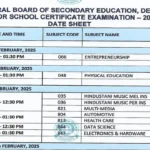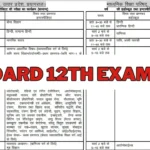The Digital News Publishers Association has taken the initiative to establish a Code of Ethics for its members, underscoring their dedication to responsible digital publishing. This commitment extends to safeguarding constitutional freedoms, including Article 19(1)(a), while actively monitoring any developments that might impede the collection and dissemination of news, current affairs, or other content.
The primary objective of this Code is to articulate elevated standards, ethics, and practices within the realm of digital news publishing. It is important to note that this framework does not seek to intrude into the day-to-day operations of publishers, who retain complete editorial and content independence.
The fundamental tenets of the Code of Ethics are designed to uphold the benchmarks of digital publishing and to preserve the autonomy of journalists, content creators, and publishers.
- Digital news platforms adhere diligently to the legal framework of the country, encompassing the Constitution of India, along with over 30 media-related statutes, pertinent provisions of the IPC, CrPC, as well as the Information Technology Act, 2000 where applicable.
- Furthermore, they conscientiously observe accepted norms of journalistic ethics and practices, maintaining the highest levels of professional conduct. These self-regulatory ethics and codes are implemented through various tiers, including those specified by specific entities, and rigorous processes within newsrooms, at both the journalist and editor levels.
- Precision, Transparency & Impartiality Members refrain from disseminating inaccurate, unfounded, or distorted material. It is imperative that pre-publication verification is a standard practice. Defamation is to be avoided, with strict adherence to applicable laws and regulations.
Right to Respond
News reports and articles should include statements or perspectives from individuals or parties implicated in the content. If not included initially, responses from the concerned party, when received subsequently, should be incorporated.
In the event of further developments in the news story, if the affected party or individual requests an update, it should be appropriately featured. The date of the update should also be indicated in the published news item.
Correction, Removal, or Editing Should a news report or article be found to contain erroneous or misleading information, the relevant portion should be amended or deleted upon request from the affected party or individual, provided they present accurate information, identify themselves, and supply the necessary documents or materials. If an entire news report is determined to be inaccurate, the entire article should be removed.
Respect for Intellectual Property Rights
Respect for copyright in various forms, such as text, photographs, plans, diagrams, cartoons, etc., is paramount. If copyrighted material is utilized, prior consent must be obtained, and proper acknowledgment of moral and ownership rights must be made.
If permission necessitates a fee or royalty, it should be duly paid.
Third-party Trade Marks and Service Marks should not be used unless prior authorization is granted, or such use qualifies as fair use.
In cases of intellectual property infringement, upon receipt of a valid request and necessary documentation, the relevant content should be edited, removed, or taken down as necessary.
Prudence in Reporting Sensational Matters and Crimes. The presumption of innocence must be upheld. Speculation on evidence, witnesses, accused, and victims, as well as their respective conduct, should be avoided. Such reporting should be rooted in facts and free from bias.
Exceptional care should be exercised in reporting on sensitive topics like workplace harassment, child abuse, rape cases involving minors, matrimonial issues, riots, communal disputes or clashes, divorce, custody matters, and adoptions, among others.
Compliance with Sections 67, 67A, and 67B of the Information Technology Act, 2000 is imperative where applicable — these sections entail penalties for publishing or transmitting explicit or obscene material, as well as material depicting children in explicit acts, in electronic form.
- Redressal of Grievances
Members, functioning as intermediaries according to the definition in the Information Technology Act, 2000, adhere to the grievance redressal mechanism as outlined therein. They also acknowledge their liabilities and the safe harbour protections under Section 79 of the IT Act 2000. Consequently, when relevant, they adhere to the Information Technology (Intermediary Guidelines) Rules, 2011, including the appointment of a grievance officer whose contact details are prominently displayed on the website. This officer acts within 36 hours of receiving a complaint and resolves it within one month of receipt.
- Training and Awareness Initiatives
Regular training and awareness programs are conducted with editorial staff to ensure an understanding of existing laws, including the Constitution of India, and the over 30 laws pertaining to the media. This encompasses acts like The Indecent Representation of Women (Prohibition) Act, Copyright Act, Right to Information Act, relevant provisions of the Indian Penal Code and CrPC, civil and criminal defamation, intellectual property rights, juvenile justice, POCSO, and provisions related to reporting on sensitive issues like rape, molestation, workplace harassment, caste or gender-related crimes, and domestic violence, among others.
- Names of victims and details leading to their identification or the perpetrator, particularly if they are juvenile or involved in a workplace setting, must be strictly avoided.
- Photographs of victims, their residences, workplaces, etc., should also be avoided.
- Special emphasis is placed on reporting matters concerning communal or religious disputes/clashes. Such news items should only be published after thorough fact-checking and presented with the utmost caution and restraint, fostering an environment conducive to communal harmony, unity, and peace.
- Extra care is taken when reporting on Courts and judicial matters. Editorial staff are educated about legislative privileges and the accurate reporting of Court hearings and judicial proceedings. This includes ensuring that the perspectives of both the victim and accused are covered, without adding comments or interpretations.
- Respect for Privacy, Particularly of Non-Public Figures.










